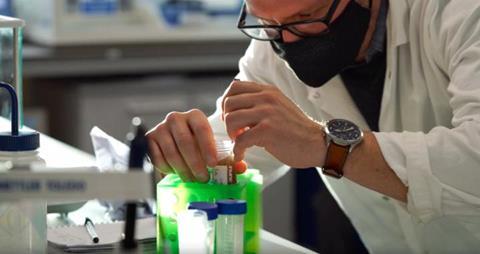Researchers from the University of Cambridge have developed a sustainable and plant-based alternative material for disposable plastics. They imitated the structure of spider silk with proteins from soya, according to Nature Communications.

Plant proteins are abundant, biodegradable and have a low environmental impact. This makes them attractive alternative building blocks for materials that can replace plastics. To produce these materials, you need methods to influence the material properties and functionality from the microstructure. The group of Tuomas Knowles from the Yusuf Hamied Department of Chemistry in Cambridge has found a scalable method for the production of polymer films from plant proteins through controlled self-assembly.
Knowles’s group investigated why materials such as spider silk are so strong when they have weak molecular bonds. They found that one of the key features that gives spider silk its strength is that the hydrogen bonds are arranged in a very high density.
The researchers used soy protein isolate (SPI), a by-product of soy oil production. SPI, however, is poorly water soluble. To develop the new polymer, the precursors were dissolved in a mixture of acetic acid and water, combined with ultrasonic treatment and high temperature, to improve the solubility of SPI. With decreasing temperature, self-assembly started. Intermolecular interactions increased due to the formation of hydrogen bonds.
The resulting material is transparent, can be coloured and easily produced on a larger scale. The mechanical properties of the material are comparable to single-use plastics, such as the film around dishwasher tablets. The polymer films do not contain covalent cross-links, toxic solvents or products that are not biodegradable.
They are bringing the new product to the market in cooperation with Xampla, a spin-off company from the University of Cambridge that develops substitutes for single-use plastics and microplastics.
Kamada, A. et al. (2021) Nat. Commun. 12












Nog geen opmerkingen